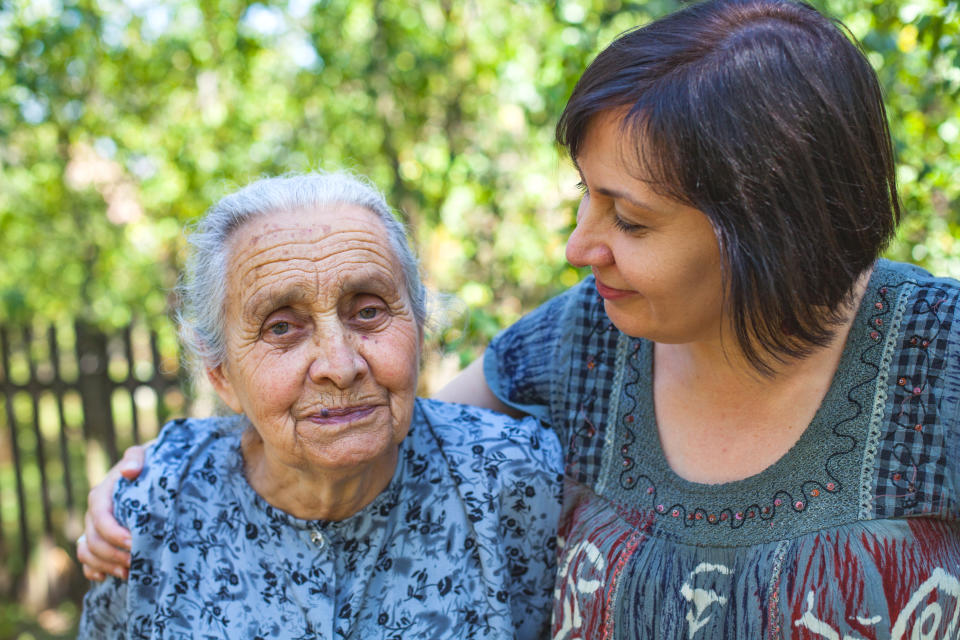Seniors urged to figure out financial and caregiver decisions before it's too late

For many families, there are few conversations more awkward and uncomfortable than talking about money and caregiving arrangements.
To top it off, these important conversations between parents and their adult children often happen too late — when the need is much more urgent.
Throw in the stress of juggling work and raising young children while dealing with these pressing decisions — plus different family members disagreeing on what is best for the loved one — and you have the perfect recipe for family conflict, unhappiness, and long-term rifts.
It’s an issue you can’t dodge either: according to a study by Fidelity Investments, 72 per cent of parents expected their children to take on caregiving responsibilities if necessary, while almost a quarter of adult children expected they would need to financially support their parents.
Meanwhile, across the country, eight million Canadians are unpaid caregivers for a family member.
There are two key things families can do to help mitigate some of the potential pitfalls that come with eldercare decision-making: start planning early, and start the family conversations early too.
For parents, it’s important to talk to a lawyer and a financial planner, so that all your paperwork and documents, such as your will and power of attorney, any personal directives, are all in order, and properly stored so that relevant parties know where they are, said personal finance educator Kelly Keehn.
A financial planner can help with addressing financial needs and goals: Do you have a mortgage? Do you have an emergency fund? Is there enough to cover your bills for three to six months? There are guides and workbooks as well that can walk you through all the things that need to be considered.
People often don’t plan for the inevitable out of fear and anxiety, or even embarrassment they never saved enough for retirement or illness, according to Nancie Taylor, a senior wealth advisor at Meridian. But it’s important to address the subject while you are healthy.
“A good way to start the ‘talk’ is to use stories you hear about friends and acquaintances who are dealing with aging challenges,” Taylor said.
“Our ability to make difficult decisions regarding our finances starts to decrease as we age,” she added, noting that some research suggests those abilities peak in the early 50s and decline at a rate of one per cent per year after the age of 60.
Discussing finances and caregiving preferences early with loved ones can also relieve some of the pressures and worries that come when an age-related illness strikes.
You don’t want to wait until a parent suffers from advanced dementia and needs 24/7 care to have that conversation on caregiving, and where the spouse is unable to provide that kind of around-the-clock care on their own, for example.
“If you don’t know what their assets and liabilities are, it’s difficult to prepare for the possibility of future long-term care,” said Keehn.
This type of scenario can raise many questions: who will care for the parent? Is there money to hire a caregiver? Should they continue to live on their own, move in to a retirement home (where waiting lists can be years-long), or move in with their children? What can everyone afford? What kind of government support or tax credits are available?
“I have seen instances with my clients when one spouse is placed in a retirement home due to health but the other spouse is not ready to leave their home,” said Taylor. “This can often double monthly budgets.”
For parents, having the conversation before it becomes urgent allows you to take control and plan ahead. Make your wishes clearly understood by everyone in your family, and revisit them periodically to make sure nothing has changed. Discuss with your family who you choose to have power of attorney and make sure the person has a list of your most important contacts: banker, accountant, doctor, dentist, neighbour, and others.
“If we plan ahead, it helps us and our loved ones in continuing to enjoy family, health and financial security,” said Taylor.
Download the Yahoo Finance app, available for Apple and Android.

 Yahoo Finance
Yahoo Finance 
